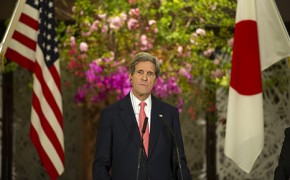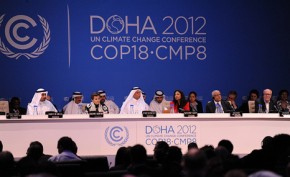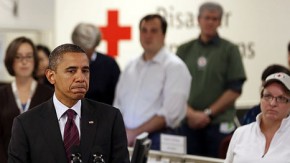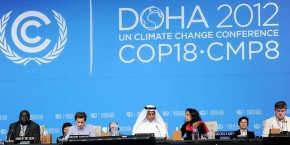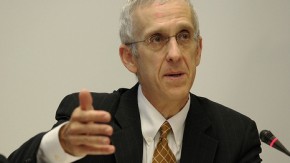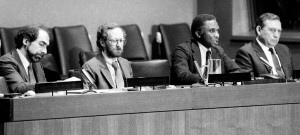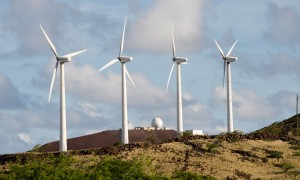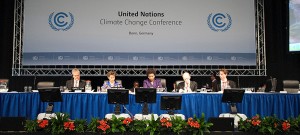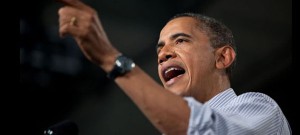Durban Platform
Divide between rich and poor at UN climate talks as wide as ever
US and EU say new agreement must erase old divisions between developed and developing nations – but others disagree
China, EU, USA & India outline global climate deal positions
As governments prepare to meet in Bonn to discuss a proposed 2015 climate treaty, RTCC looks at the opening positions of the USA, EU, China and India
Kerry pushes US climate ambition in Japan
Countries agree to increase cooperation ahead of 2015 global treaty on climate change
Climate heavyweights fire fresh salvos in global CO2 debate
China, USA and influential group of developing nations spell out condition for the UN’s 2015 universal climate agreement in papers lodged this week
Splits emerging in UN climate deal agreed in Doha
Divisions over plans to develop a global climate deal appear after two influential groups of developing nations accused rich countries of undermining negotiations
Same old story from USA and Obama at UN climate talks
Despite promises in election victory speech, there were few signs of newfound urgency on climate change from US delegation at Doha COP18 summit
“Hollow” Kyoto bad omen for Durban deal, says African advisor
Failure of Kyoto to elicit ambitious cuts from developed countries is a bad sign for universal deal’s prospects.
US sets out terms for 2015 global climate deal
COP18: Climate change envoy says the deal must divvy up responsibiity for climate change in a way that reflects the world in the 2020s.
Doha silence on 2015 deal endangers Durban progress
COP18: “Narrow focus” on Kyoto Protocol and growing complacency on long term targets jeopardizing last year’s landmark agreement.
How the UN climate talks can glue together a global carbon market
COP18: Fragmentation of the carbon market spells trouble for the climate unless a way is found to make national and regional schemes in step with international efforts to reduce emissions.
Climate action must be accelerated at Doha talks, warns UN climate chief
UN climate chief warns that COP18 talks must see progress on 2015 emissions deal if 2°C temperature rise is to be avoided
Obama can drive climate action at Doha talks: Figueres
Newly re-elected President Obama can seize momentum at international talks, says UN climate chief.
Montreal Protocol: What can UN climate negotiators learn from the ozone treaty?
In 1987 states around the world united to cut the emission of dangerous gases that threatened the planet. 25 years later it is proving impossible to repeat the trick. Why?
VIDEO: Expert explains why renewables sector needs policy certainty
Professor Peter Newell outlines importance of binding emissions deal for business community at 2012 Low Carbon Energy for Development Network (LCEDN) meeting in Brighton
Analysis: Was enough achieved at UN climate talks in Bangkok?
Edward Cameron and Yamide Dagnet from the World Resources Institute argue that the latest UNFCCC negotiations should be seen as a qualified success – but warn there is much work yet to do.
Bangkok 2012: Civil society react to latest round of UN climate talks
Reaction to UNFCCC negotiations from Greenpeace, WWF, Christian Aid, Practical Action, Third World Network, Union of Concerned Scientists & Environmental Defense Fund
Bangkok 2012 – Kaleidoscope of visions for Durban Platform make path forward unclear
RTCC takes a brief look at discussions on the Durban Platform during the UN climate talks in Bangkok
Bangkok 2012 – USA accused of backtracking on legally binding UN climate treaty
State Department negotiator Jonathan Pershing calls for new climate treaty to value flexibility and dynamism over legal nature
Bangkok 2012 – Future of climate finance and adaptation trigger debate as LCA talks heat up
The Long Term Cooperative Action negotiations are top of the agenda in Bangkok as countries disagree over its future and the developing vs developed nations rift widens.
Bangkok 2012 – Rich countries must not dump their responsibilities on the poor says NGO
Third World Network says developed economies must take responsibility for their historical emissions with ambitious targets to cut greenhouse gases.

